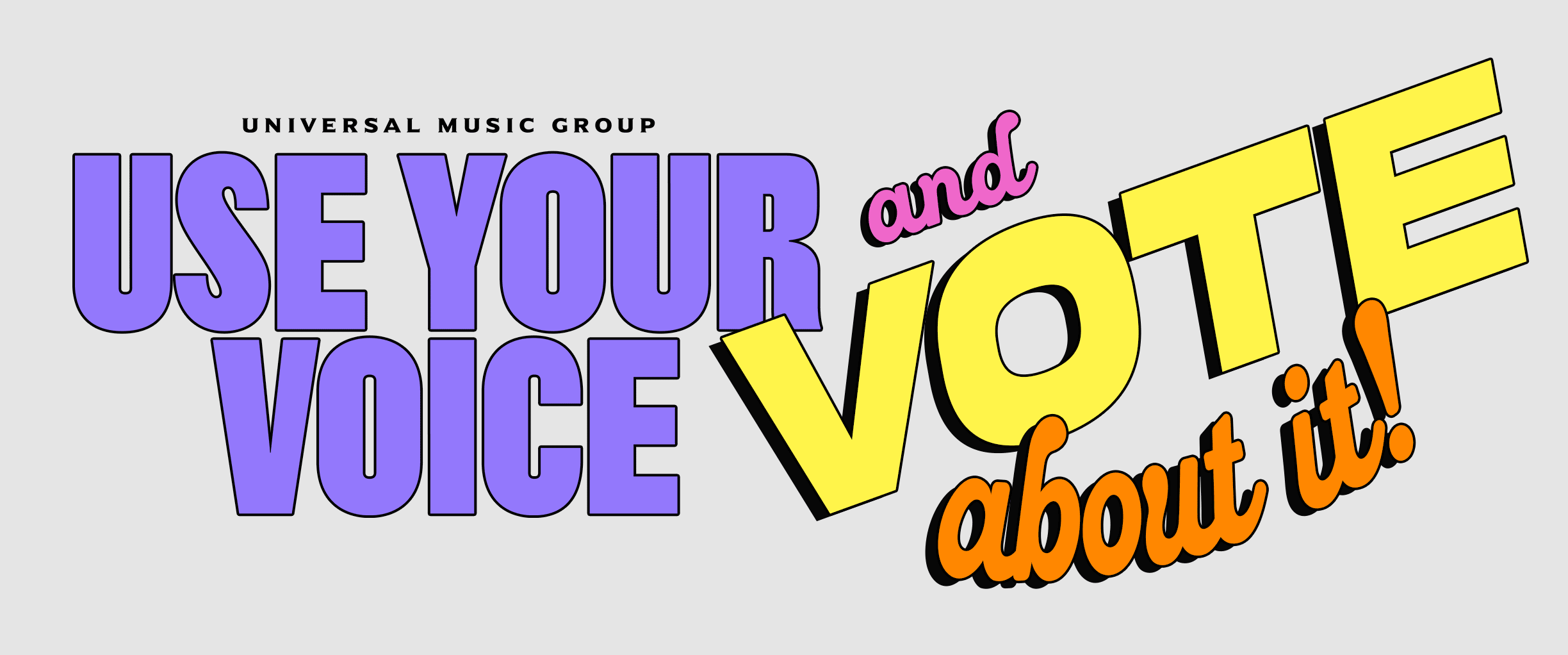
WHAT YOU NEED TO KNOW ABOUT THE MIDTERMS AND THE ISSUES
Why Midterms?
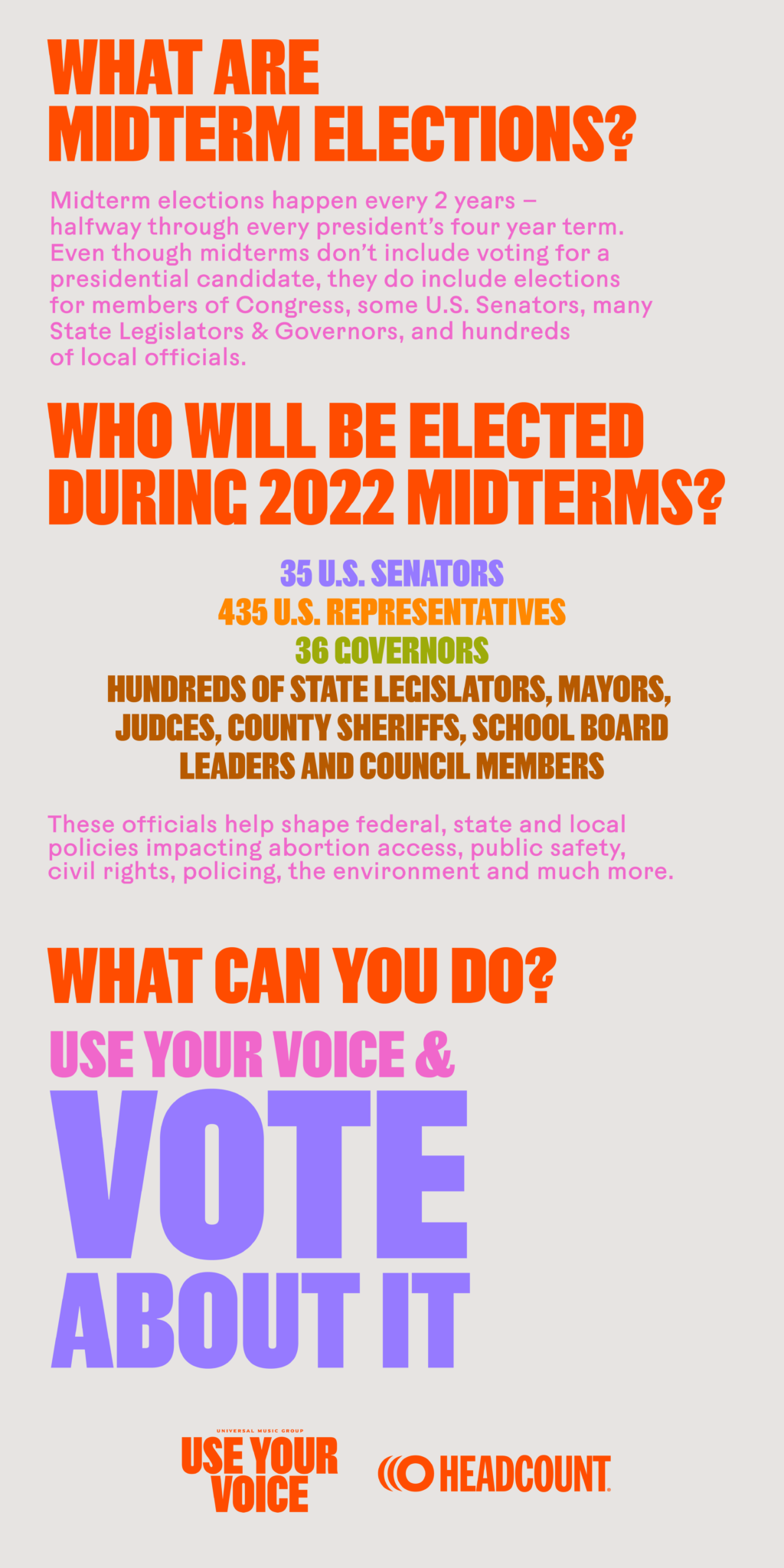
Midterms + Youth Voting with Kiana Ledé
View this post on Instagram
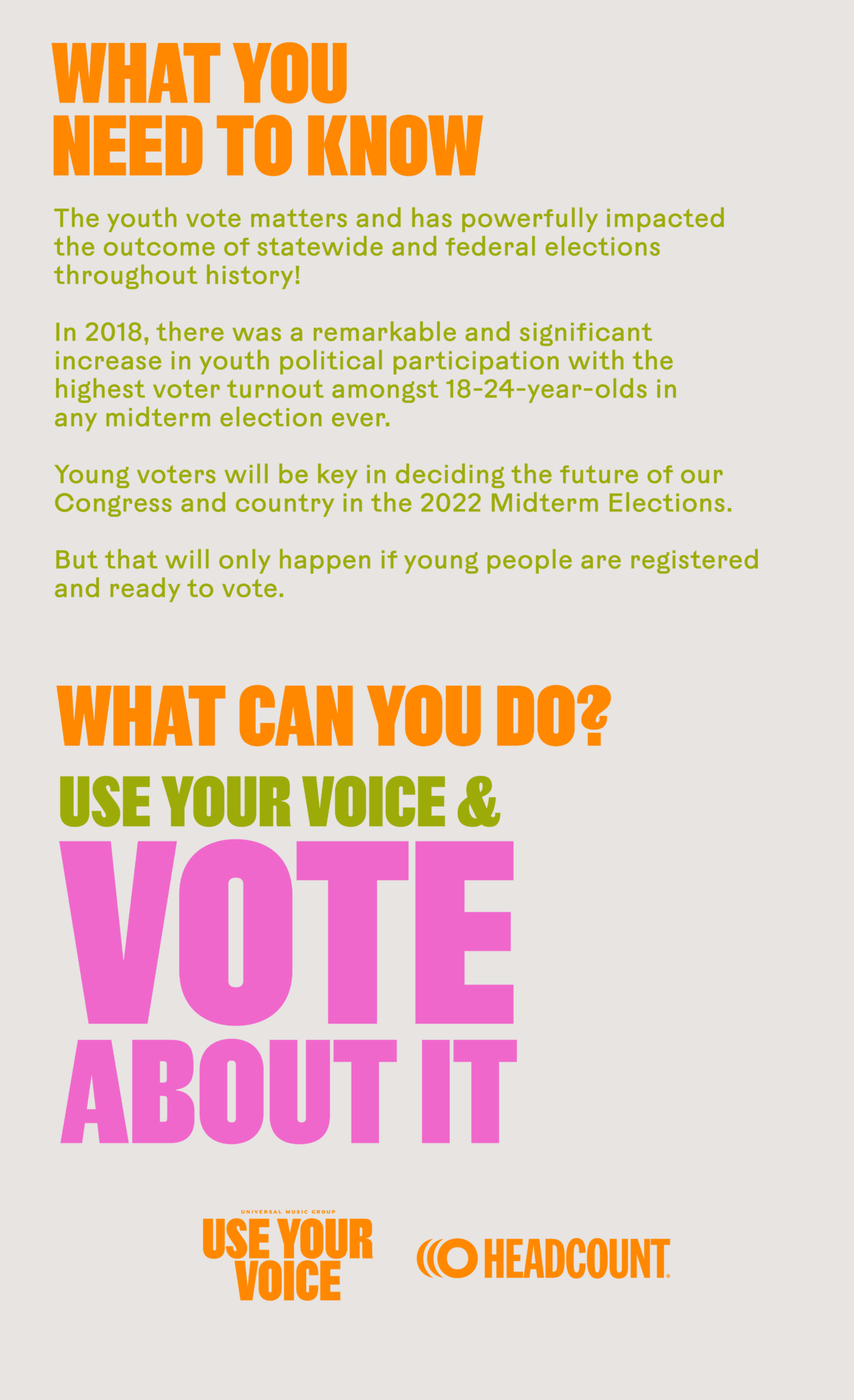
Midterms + Environment
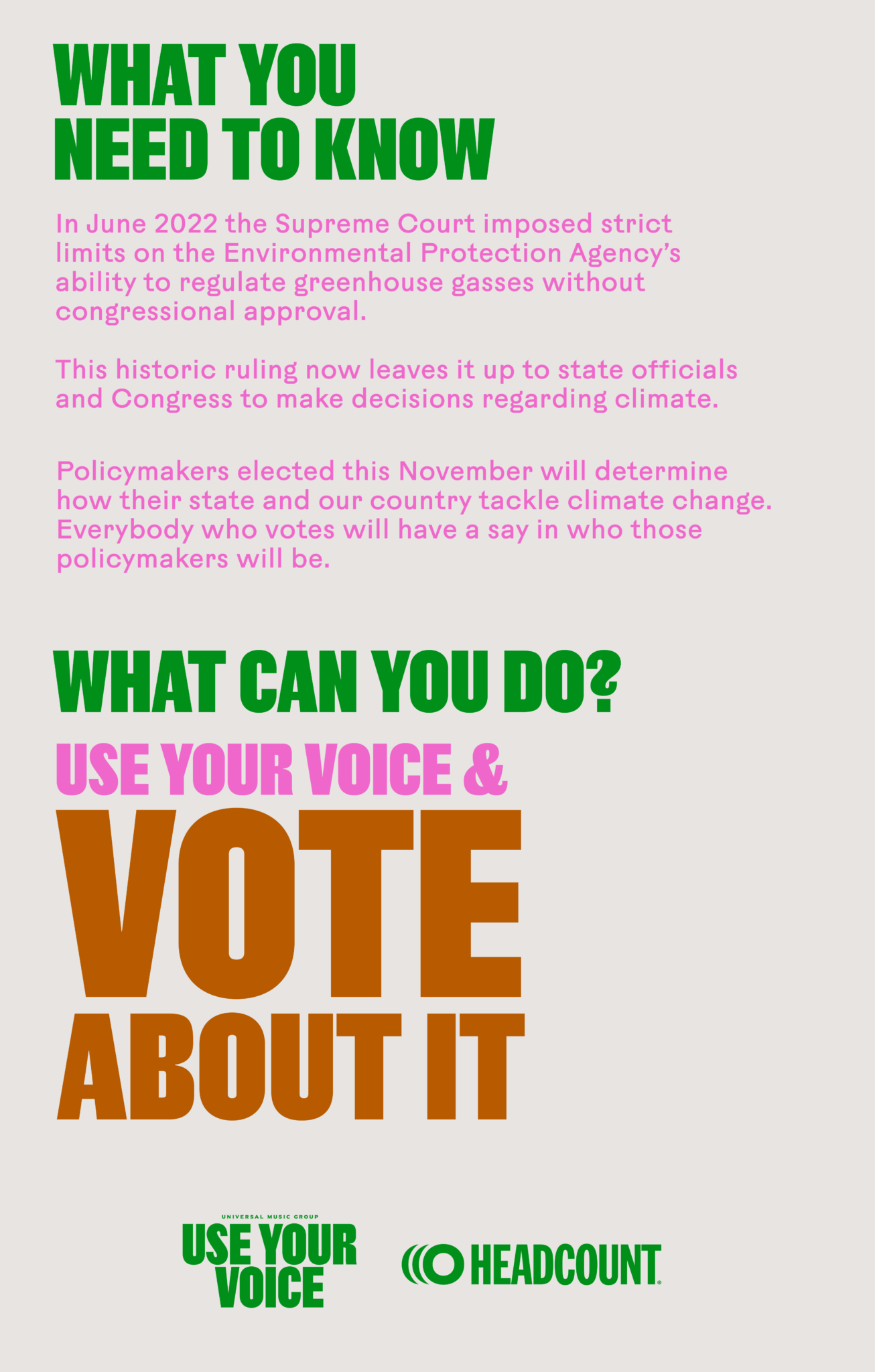
Midterms + Policing
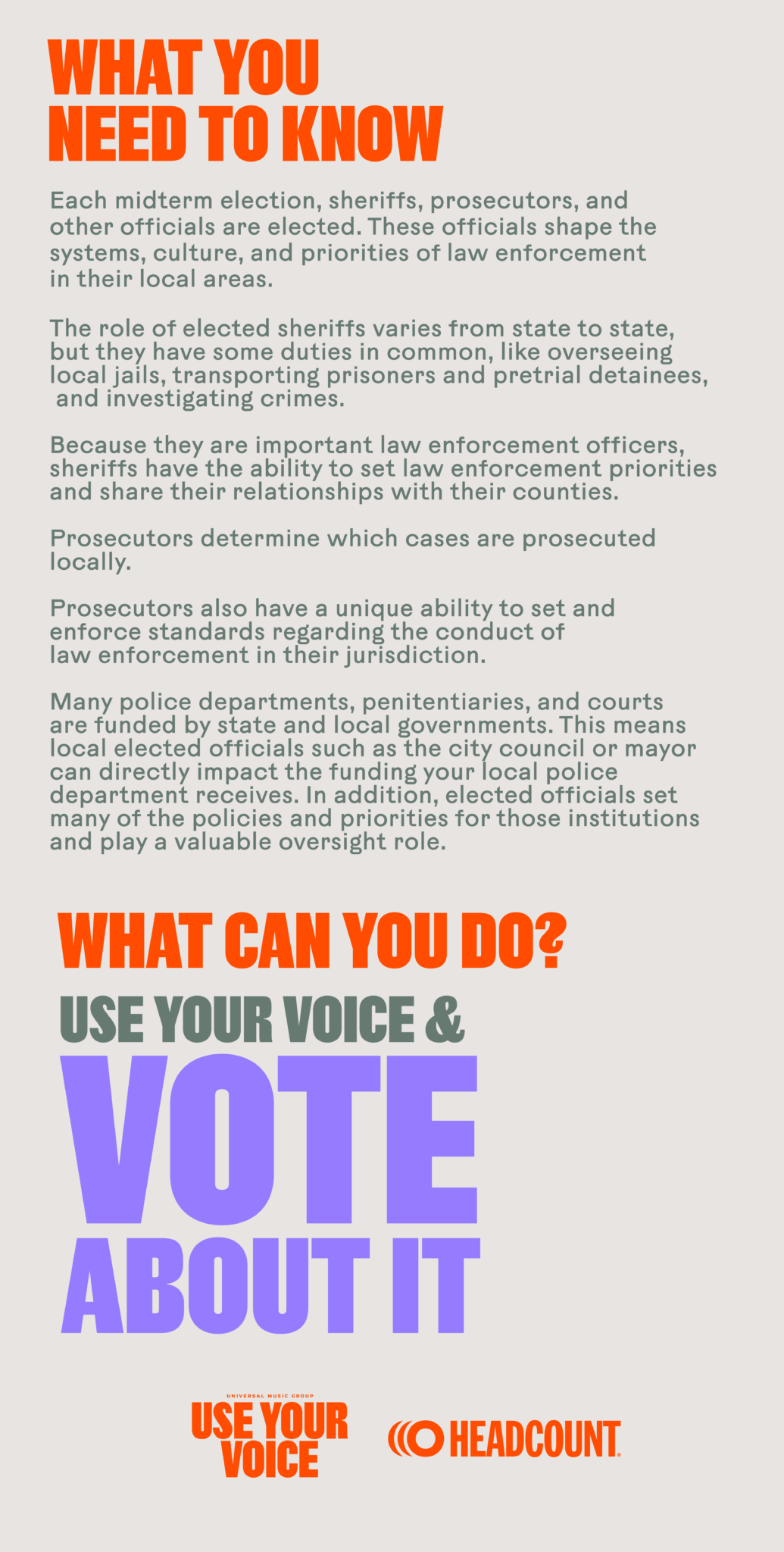
Midterms + Abortion Access
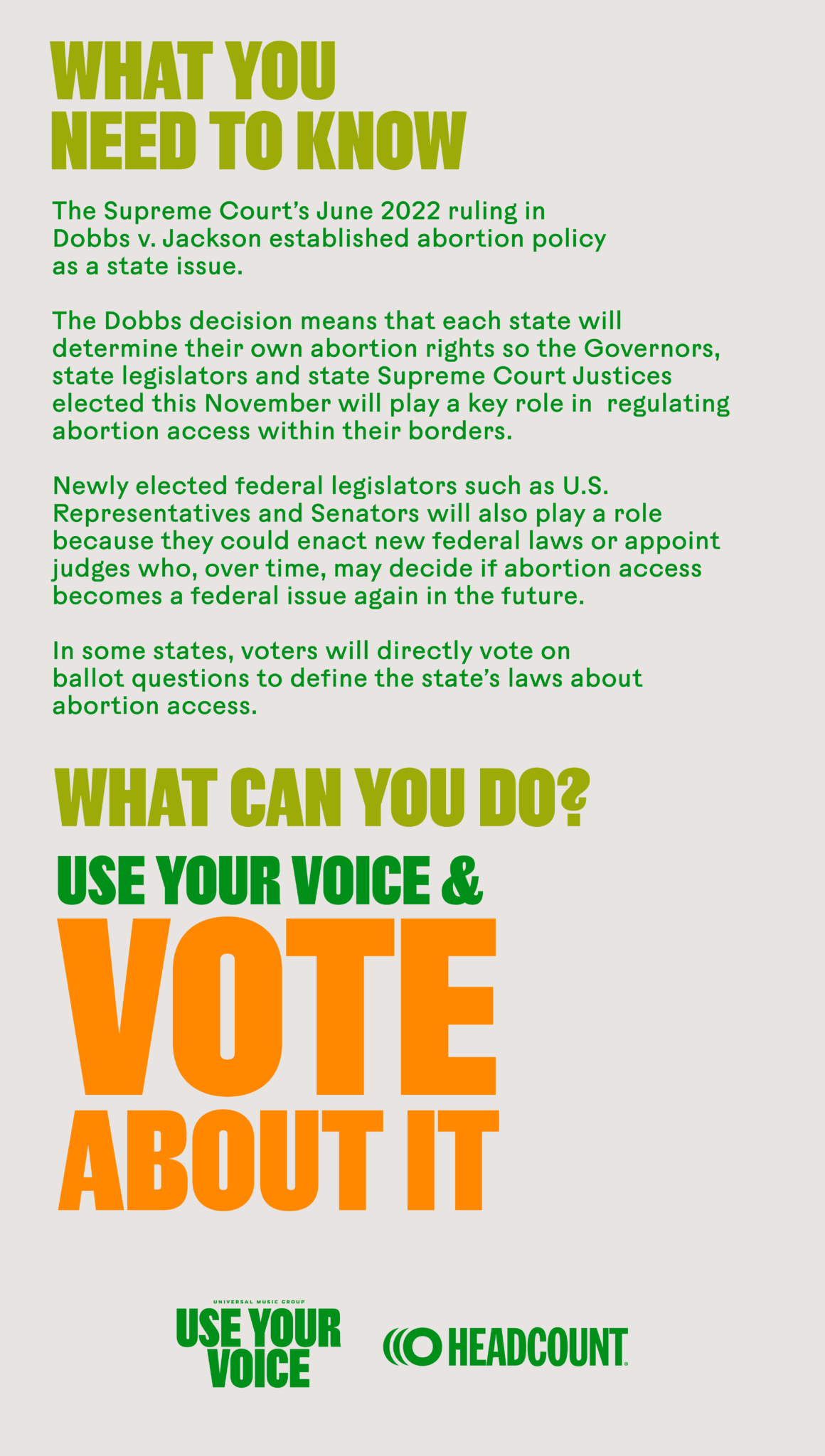
Want to attend free concerts and register voters?



